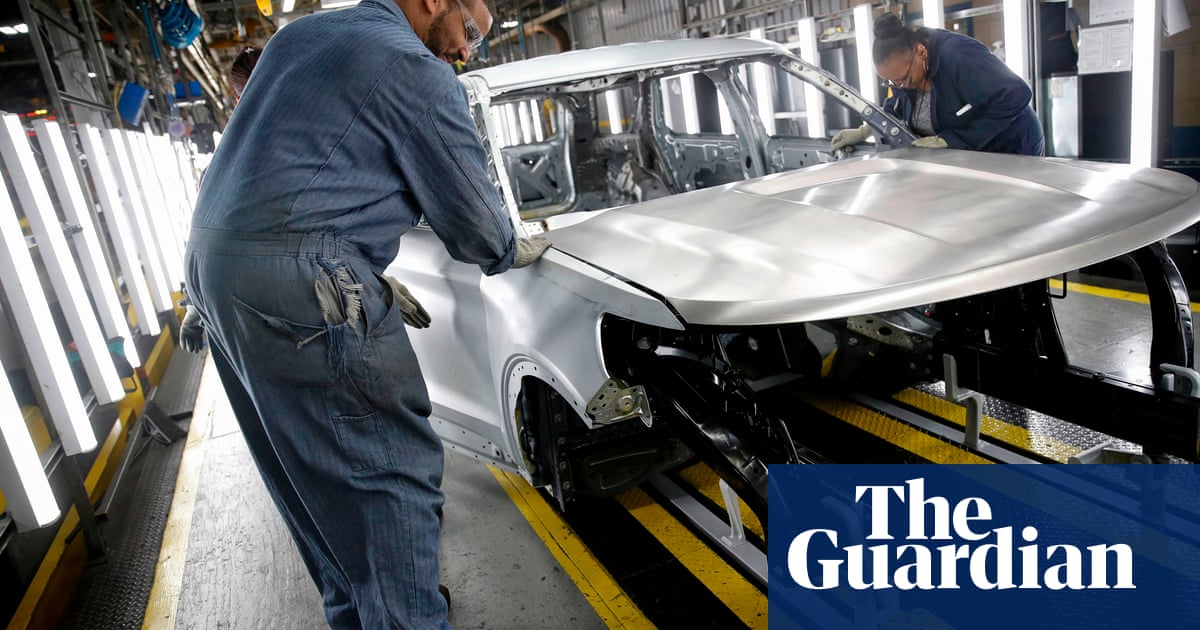Donald Trump plans to cushion the impact of his tariffs on US carmakers by easing some duties on foreign vehicle parts, his administration has said.
“President Trump is building an important partnership with both the domestic automakers and our great American workers,” the commerce secretary, Howard Lutnick, said in a statement provided by the White House.
“This deal is a major victory for the president’s trade policy by rewarding companies who manufacture domestically, while providing runway to manufacturers who have expressed their commitment to invest in America and expand their domestic manufacturing.”
The move means car companies paying tariffs would not be charged other levies, such as those on steel and aluminium,, according to the Wall Street Journal, which first reported the development.
Carmakers would be able to secure a partial reimbursement for tariffs on imported auto parts, based on the value of their US car production, under the plans.
Cars made outside the US will still be subject to Trump’s tariffs but will be exempt from other levies. The plan is expected to be officially confirmed later on Tuesday.
Trump is traveling to Michigan on Tuesday to commemorate his first 100 days in office, a period that the Republican president has used to upend the global economic order.
The move to soften the effects of auto levies is the latest by his administration to show some flexibility on tariffs, which have sown turmoil in financial markets, created uncertainty for businesses and sparked fears of a sharp economic slowdown.
Carmakers said on Monday that they were expecting Trump to issue relief from the auto tariffs ahead of his trip to Michigan, which is home to the “Detroit Three” companies and more than 1,000 big auto suppliers.
General Motors (GM) chief executive Mary Barra and Ford boss Jim Farley praised the planned changes. “We believe the president’s leadership is helping level the playing field for companies like GM and allowing us to invest even more in the US economy,” Barra said.
Farley said the changes “will help mitigate the impact of tariffs on automakers, suppliers and consumers”.
Last week, a coalition of US car industry groups urged Trump not to impose 25% tariffs on imported parts, warning they would cut vehicle sales and raise prices. Trump had said earlier he planned to impose tariffs of 25% on car parts no later than 3 May.
“Tariffs on auto parts will scramble the global automotive supply chain and set off a domino effect that will lead to higher auto prices for consumers, lower sales at dealerships and will make servicing and repairing vehicles both more expensive and less predictable,” the industry groups said in the letter.
The letter from the groups representing GM, Toyota Motor, Volkswagen, Hyundai and others, was sent to US trade representative Jamieson Greer, treasury secretary Scott Bessent and Lutnick.
